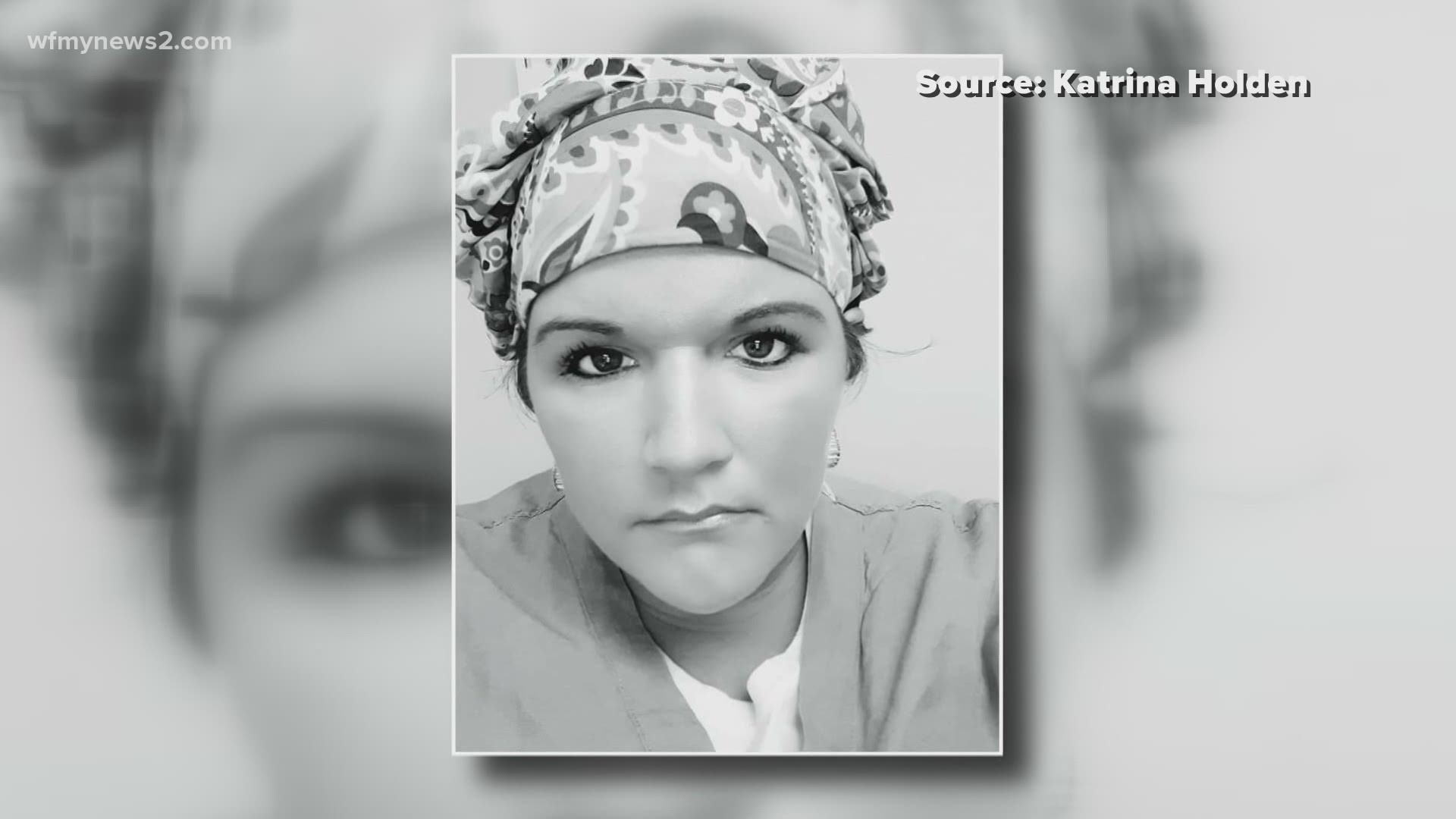RALEIGH, N.C. — Katrina Holden helped lead her team in the ICU unit at UNC Rex Hospital when the pandemic hit North Carolina.
From February to June, Holden and her team built policies and procedures so staff would be well-prepared to treat patients.
As more patients began seeking treatment for COVID-19 in June, Holden said she stepped in to help fill the need for nurses.
"At first, you know, the unknown was really scary. You know, we would walk in every day and not know what we were going to be looking at because no one really knew how the virus was going to attack the body and we still don't," said Holden, "these patients come up with new symptoms and new ways of the virus is attacking that normal types of treatment don't work for them."
She explained how nurses were usually the last person some patients interact with before taking their last breath.
"Nine times out of 10 we don't know when they're going to die unless the family makes that decision on their own. So, most of the time there is no family at the bedside," according to Holden.
The ICU nurse expressed her frustrations when people disregard the virus, citing the high survival rate. "I see a lot of people on social media saying that 99% recover," she said, "As a nurse, I know different. You know that if 98% do recover, that still means that like 5 million people are dying from this virus."
Then, Holden tested positive for coronavirus, and her case was more severe. She said she developed pneumonia in both her lungs while she had COVID-19, "I still wasn't showing the typical pneumonia symptoms. I didn't have a cough, I didn't have a runny nose, I wasn't running a fever. So, that pneumonia could've turned deadly within a week if I didn't get a CT scan."
Holden was given three antibiotics to help treat her pneumonia. She said she still has a hard time breathing, "I get a really fast heart rate, my heart runs in like the 150s to get up to change a load of laundry or try to take care of my kids."
The mother of three went into quarantine as soon as she learned she had the virus, but her family had already been exposed. Her whole family was tested; Holden's husband and three-year-old son tested positive for COVID-19.
After working on the frontline, and fighting the virus herself, Holden said informing her co-workers and loved ones of a possible exposure is not a conversation she feels anyone should have.
"I would say if you don't want to make that call and cause, well, it's not that you're going to cause their death, but you could potentially cause one of your friends or family to get COVID-19 and lose their life and I don't think there is anything worth that this holiday season."

